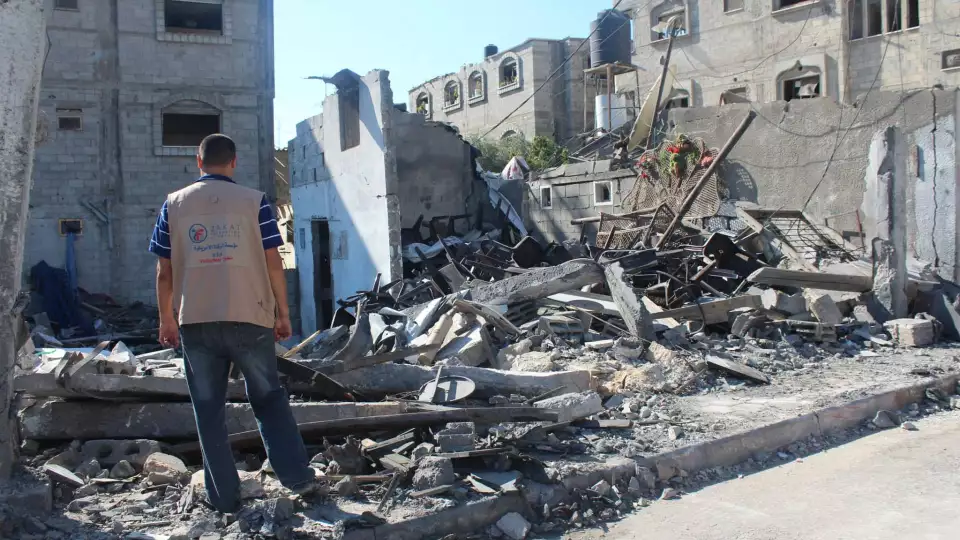
The short answer seems to be the same as putting salt on an open wound. It’s to make the pain that much less bearable.
A May 17 air strike destroyed Palestine Children’s Relief Fund’s (PCRF’s) office in Gaza city.
It makes life in places like Gaza and heavily occupied parts of the West Bank less desirable to live in. It makes more people who live there want to leave to try to start a better life elsewhere.
In Gaza, which has for about 15 years been labeled the world’s largest open-air prison, residents are lucky to have electricity for six hours in a day let alone access to clean, drinkable water. More than 50% of the workforce is unemployed. Trade is blockaded by air, land and sea. The most recent strikes displaced more than 52,000 Palestinians in Gaza — who were already displaced to begin with. The only ways to make the conditions worse are to destroy what’s left and limit reconstruction — exactly what is happening.
But hope is a constant, and it’s at its strongest when the situation is most dire.
Nonprofit organizations may be limited in their capacity to aid Palestinians both in Gaza and the West Bank, but they are not kept out entirely. Zakat Foundation of America is on the ground in Gaza facilitating distributions.
Zakat Foundation has already begun a campaign to distribute 1,000 food packages, 1,000 gallons of drinking water and 1,000 hygiene packages each week for 10 weeks. Our representatives are in the field helping Gaza’s people, who are once again on the brink of losing everything and everyone.
These distributions, done in partnership with ANERA (American Near East Refugee Aid), PCRF and the United Nations Relief and Works Agency (UNRWA), show that humanitarian organizations in Palestine will continue to work together, even when everything possible is done to split them apart.
However, from an international law standpoint, Israel is obligated to allow and facilitate humanitarian aid. Human Rights Watch addressed this directly in a Q&A, making it clear that:
“Under international humanitarian law, parties to a conflict must allow and facilitate the rapid and unimpeded passage of impartially distributed humanitarian aid to the population in need. … They can take steps to ensure that consignments do not include weapons or other military materiel. However, deliberately impeding relief supplies is prohibited.”
Zakat Foundation of America has shown an unyielding devotion to the survival and thriving of Palestine’s people since the organization was founded, be they in Palestine’s West Bank or Gaza, or in other countries. They have been in the region providing immediate food aid and long-term, sustainable food security. They provide education, orphan sponsorship, mental and physical health care and other frontline emergency aid.
Humanitarian organizations do it to stand on the right side of human history. Won’t you?






